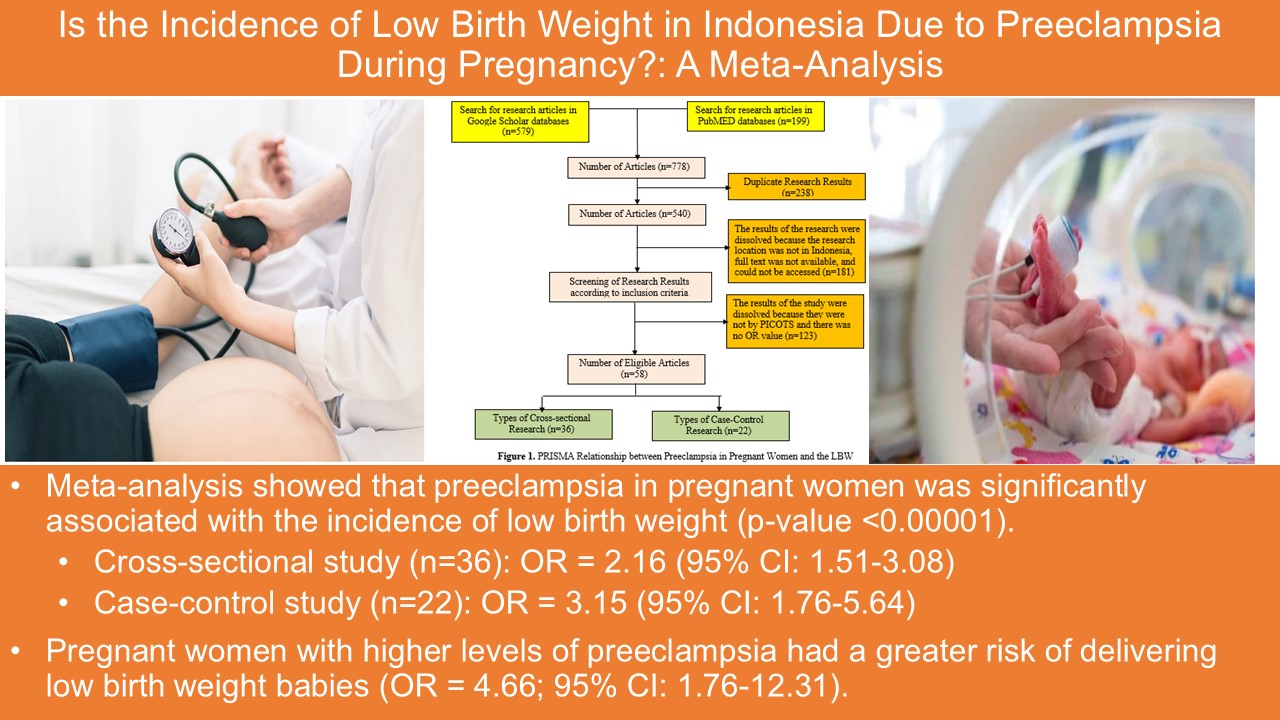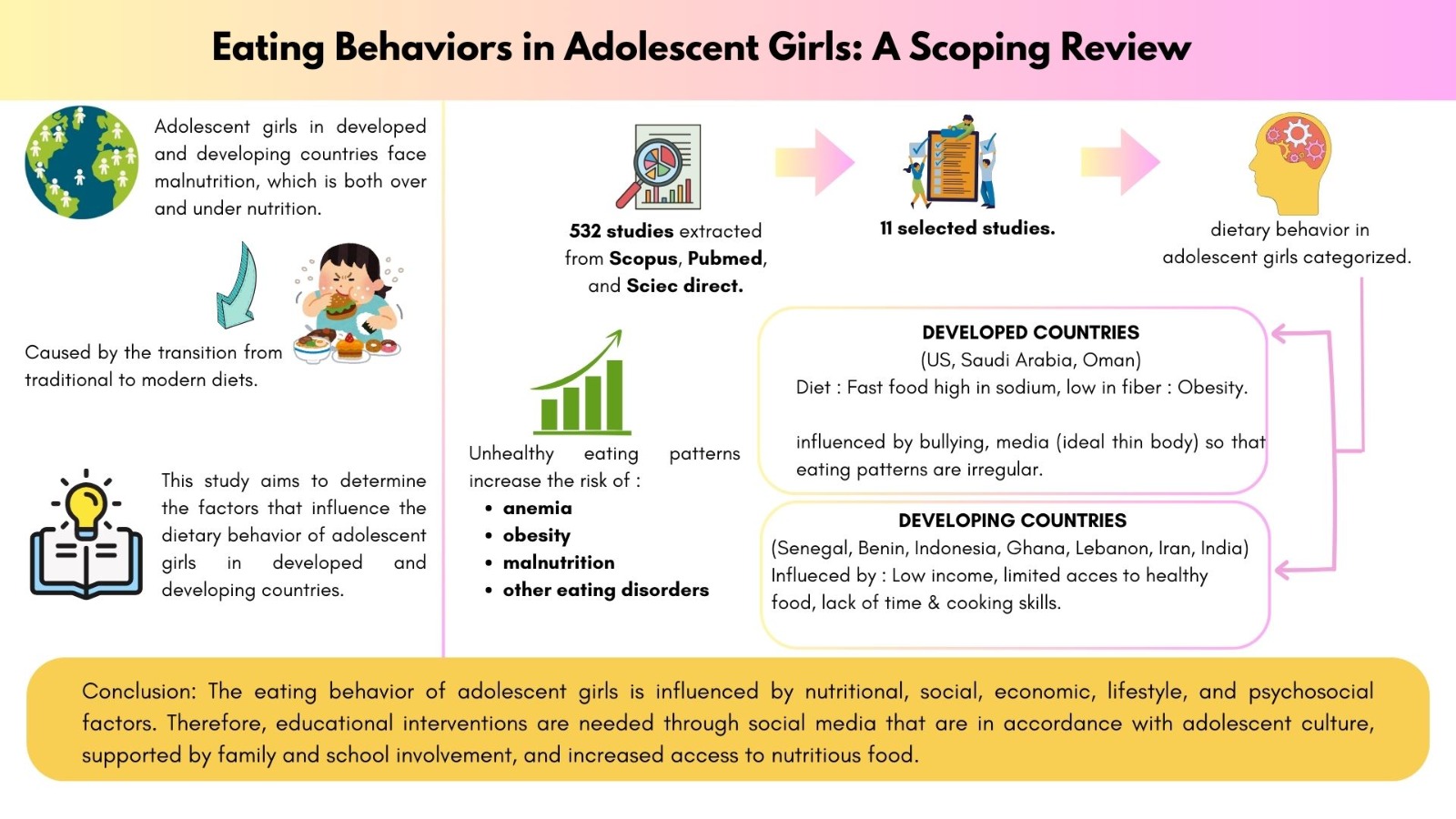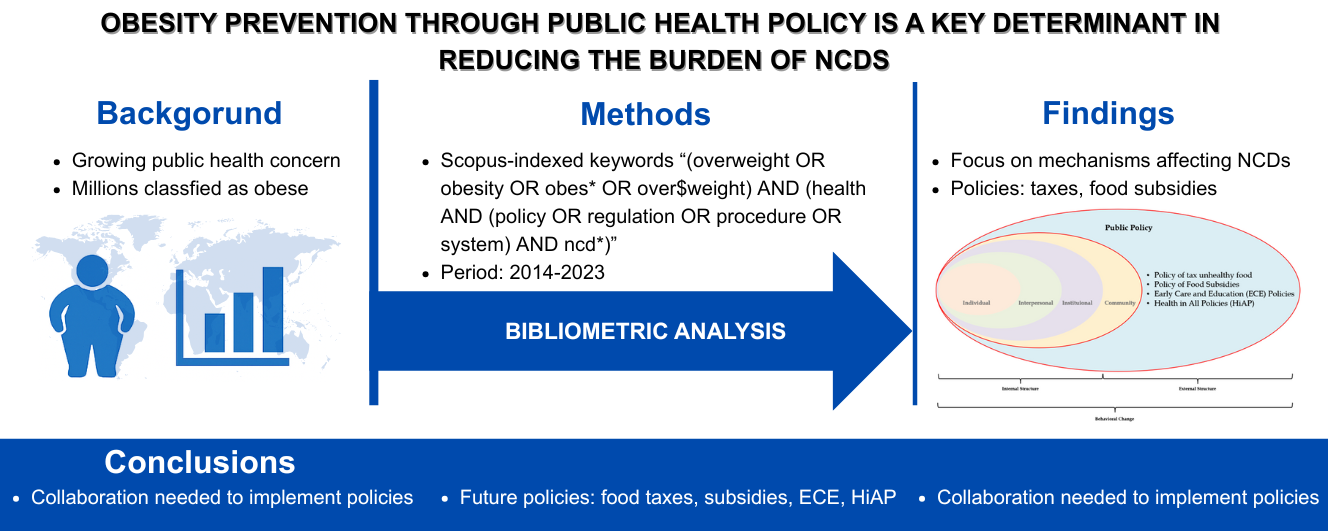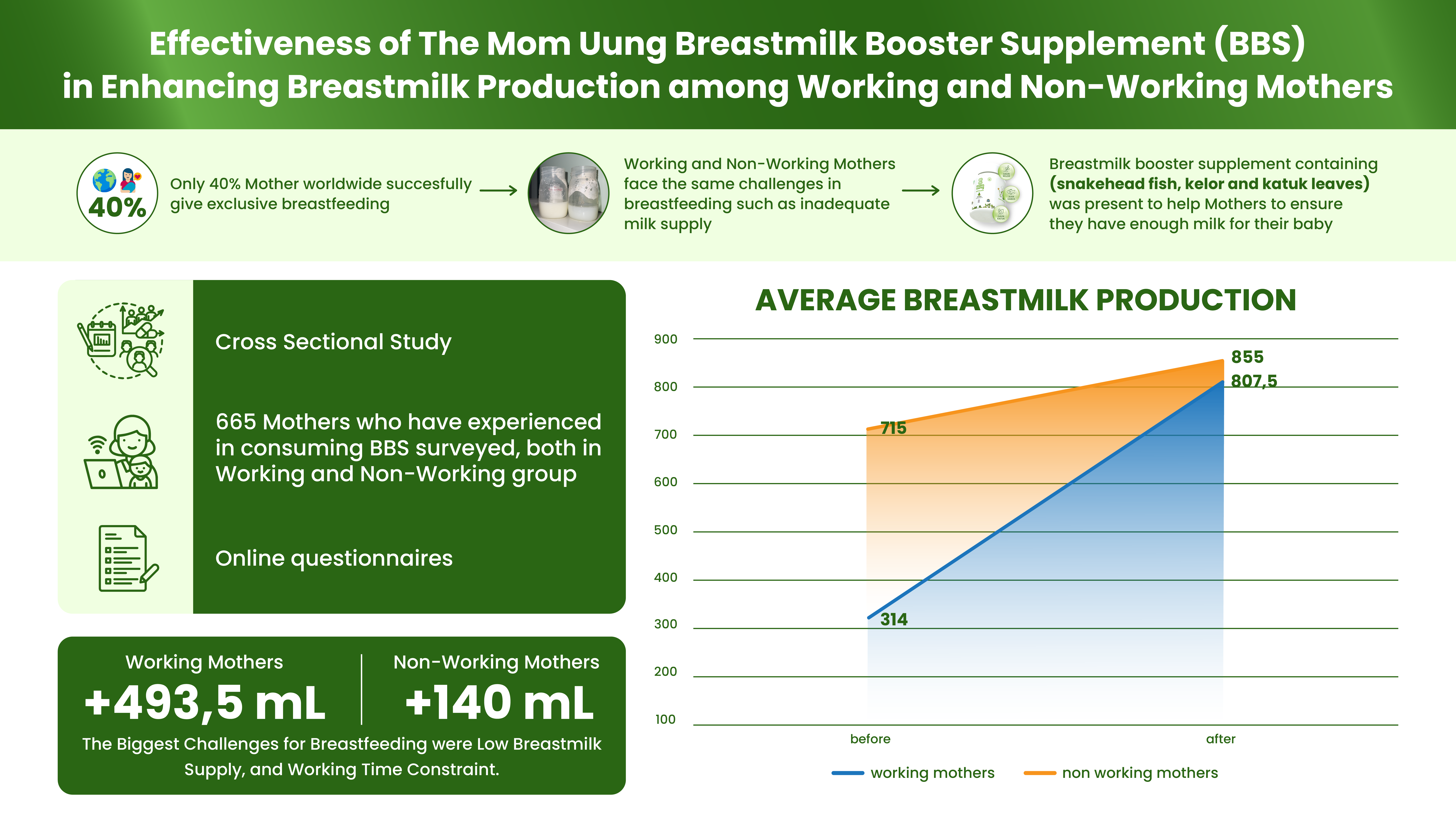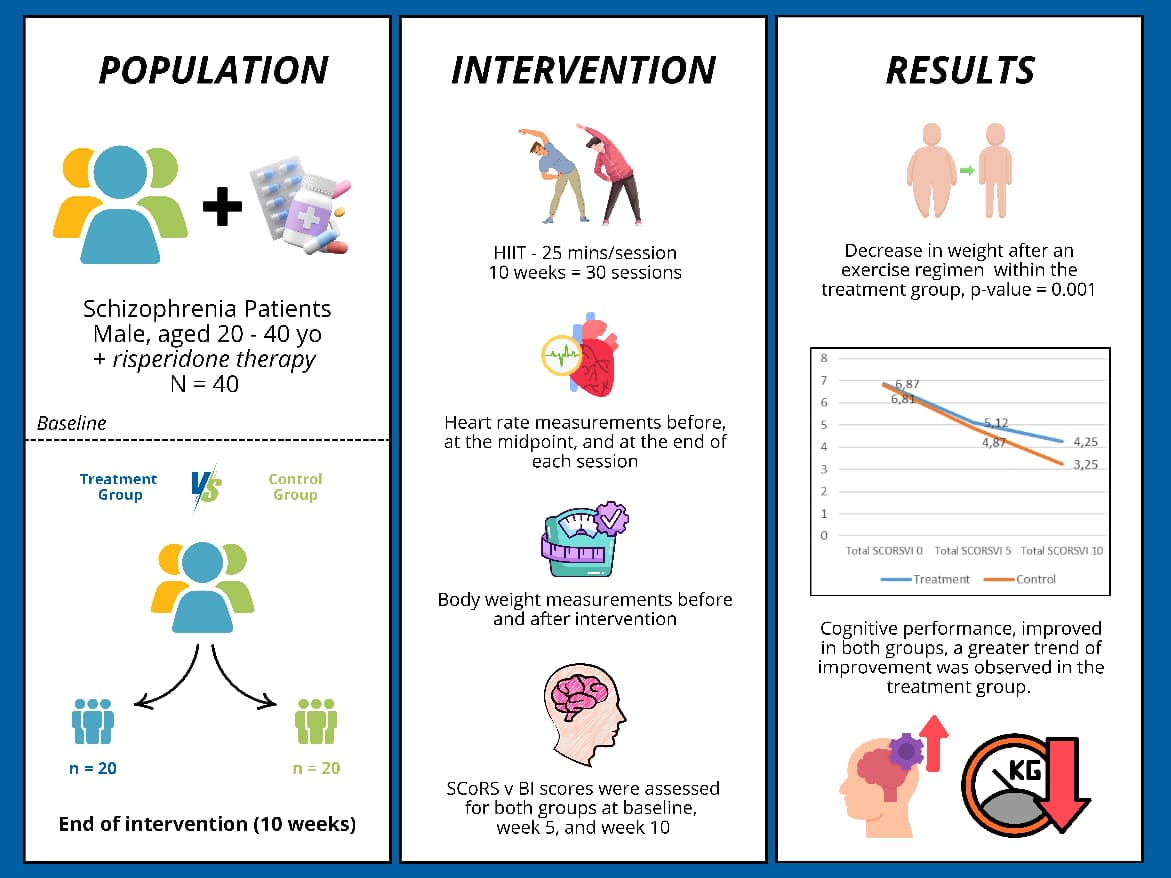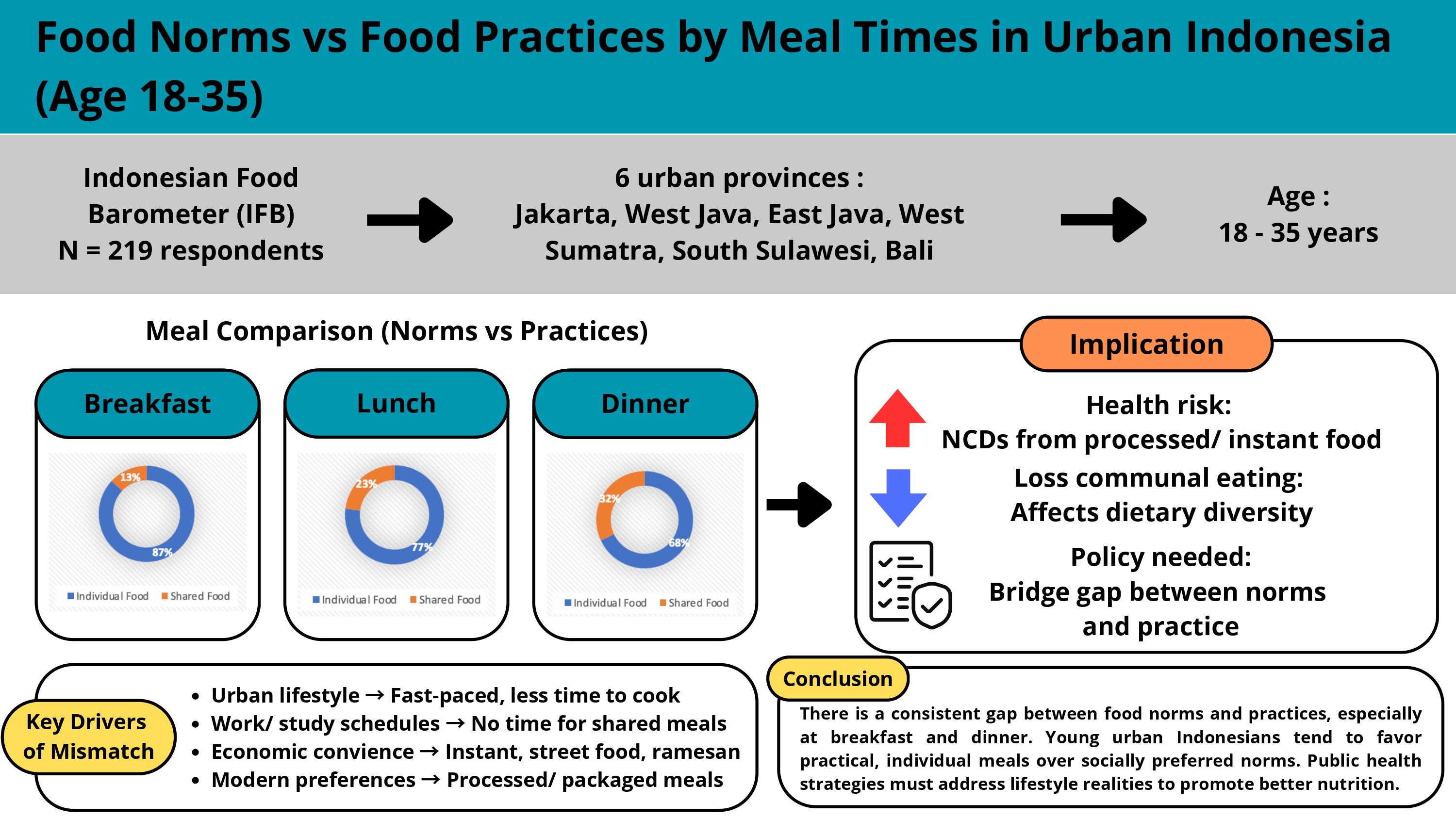Enhancement of Sports Nutrition Knowledge and Energy Intake after Sports Nutrition Education for Combat Athletes
Downloads
Providing nutrition and food support is necessary for enhancing and maximizing athletic performance in individuals engaged in sports activities. This study aimed to examine the impact of sports nutrition education on combat athletes' sports nutrition knowledge and nutritional sufficiency. This quantitative study used a quasi-experimental design, explicitly utilizing a pretest-posttest control group design. The study included a total of 76 participants, who were categorized into two groups: intervention and control. Each group consisted of 38 athletes. The data were analysed using SPSS. The Independent T-Test and Paired T-Test determined if the data followed a normal distribution. The Mann-Whitney and Wilcoxon Signed Rank tests were employed if the data did not follow a normal distribution. The nutrition education intervention comprised seven weekly materials sent to the intervention group. The findings indicated significant nutritional knowledge differences (p=<0.001) between the intervention and control groups. Additionally, there were significant differences in the sufficiency of energy intake (p=0.029) within the intervention group. The study's findings indicated that nutrition education significantly affected the intervention group's sports nutrition knowledge and energy intake adequacy. Additionally, the nutrition education intervention significantly affected the sports nutrition knowledge of the control group. Athletes' enhanced understanding will positively affect their ability to satisfy energy requirements.
Afandi, A., & Siregar, N. S. (2020). Efektivitas Buku Saku Gizi Terhadap Peningkatan Pengetahuan Atlet UNIMED Atletik Club (UAC). Jurnal Kesehatan Dan Olahraga, 4(2).
Alaunyte, I., Perry, J. L., & Aubrey, T. (2015). Nutritional knowledge and dietary patterns of professional rugby league players: Does knowledge translate into practice? Journal of the International Society of Sports Nutrition, 12(1). https://doi.org/10.1186/s12970-015-0082-y
American Dietetic Association, Dietitians of Canada, American College of Sports Medicine, Rodriguez, N. R., di Marco, N. M., Langley, S., & American College of Sports Medicine position stand. (2009). Nutrition and Athletic Performance. Medicine & Science in Sports & Exercise, 41(3), 709–731. https://doi.org/10.1249/MSS.0b013e31890eb86
Andrews, A., Wojcik, J. R., Boyd, J. M., & Bowers, C. J. (2016). Sports Nutrition Knowledge among Mid-Major Division I University Student-Athletes. Journal of Nutrition and Metabolism, 2016, 1–5. https://doi.org/10.1155/2016/3172460
Bentley, M. R. N., Mitchell, N., & Backhouse, S. H. (2020). Sports nutrition interventions: A systematic review of behavioural strategies used to promote dietary behaviour change in athletes. Appetite, 150, 104645. https://doi.org/10.1016/j.appet.2020.104645
Berliandita, A. A., & Hakim, A. A. (2021). Analisis Pengetahuan Gizi dan Perilaku Makan pada Mahasiswa Angkatan 2017 Prodi Ilmu Keolahragaan Unesa. Indonesian Journal of Kinanthropology (IJOK), 1(1), 8–20. https://doi.org/10.26740/ijok.v1n1.p8-20
Birkenhead, K. L., & Slater, G. (2015). A Review of Factors Influencing Athletes' Food Choices. Sports Medicine, 45(11), 1511–1522. https://doi.org/10.1007/s40279-015-0372-1
Campa, F., Toselli, S., Mazzilli, M., Gobbo, L. A., & Coratella, G. (2021). Assessment of Body Composition in Athletes: A Narrative Review of Available Methods with Special Reference to Quantitative and Qualitative Bioimpedance Analysis. Nutrients, 13(5), 1620. https://doi.org/10.3390/nu13051620
Farapti, Adiningsih, S., & Rifqi, M. A. (2019). Erythrocyte-superoxide dismutase (SOD1) among elite combat sport athletes running an intensive training program and the association with micronutrient intake. Biochemical and Cellular Archives, 19(2), 4703–4711.
Foo, W. L., Faghy, M. A., Sparks, A., Newbury, J. W., & Gough, L. A. (2021). The Effects of a Nutrition Education Intervention on Sports Nutrition Knowledge during a Competitive Season in Highly Trained Adolescent Swimmers. Nutrients, 13(8), 2713. https://doi.org/10.3390/nu13082713
Gibson, R. S. (2005). Principles of Nutritional Assessment (2nd ed.). Oxford University Press.
Heaney, S., O'Connor, H., Michael, S., Gifford, J., & Naughton, G. (2011). Nutrition Knowledge in Athletes: A Systematic Review. International Journal of Sport Nutrition and Exercise Metabolism, 21(3), 248–261. https://doi.org/10.1123/ijsnem.21.3.248
Heikkilä, Lehtovirta, Autio, Fogelholm, & Valve. (2019). The Impact of Nutrition Education Intervention with and Without a Mobile Phone Application on Nutrition Knowledge Among Young Endurance Athletes. Nutrients, 11(9), 2249. https://doi.org/10.3390/nu11092249
Jagim, A. R., Zabriskie, H., Currier, B., Harty, P. S., Stecker, R., & Kerksick, C. M. (2019). Nutrient Status and perceptions of energy and macronutrient intake in a Group of Collegiate Female Lacrosse Athletes. Journal of the International Society of Sports Nutrition, 16(1). https://doi.org/10.1186/s12970-019-0314-7
Jenner, S. L., Trakman, G., Coutts, A., Kempton, T., Ryan, S., Forsyth, A., & Belski, R. (2018). Dietary intake of professional Australian football athletes surrounding body composition assessment. Journal of the International Society of Sports Nutrition, 15(1), 43. https://doi.org/10.1186/s12970-018-0248-5
Kemenkes RI. (2021). Panduan Pendampingan Gizi pada Atlet.
Kerksick, C. M., Wilborn, C. D., Roberts, M. D., Smith-Ryan, A., Kleiner, S. M., Jäger, R., Collins, R., Cooke, M., Davis, J. N., Galvan, E., Greenwood, M., Lowery, L. M., Wildman, R., Antonio, J., & Kreider, R. B. (2018). ISSN exercise & sports nutrition review update: research & recommendations. Journal of the International Society of Sports Nutrition, 15(1). https://doi.org/10.1186/s12970-018-0242-y
Kustiawan, T. C., Nadhiroh, S. R., Ramli, R., & Butryee, C. (2022). Use of mobile app to monitoring growth outcome of children: A systematic literature review. Digital Health, 8, 205520762211386. https://doi.org/10.1177/20552076221138641
Mettler, S., Mitchell, N., & Tipton, K. D. (2010). Increased Protein Intake Reduces Lean Body Mass Loss during Weight Loss in Athletes. Medicine & Science in Sports & Exercise, 42(2), 326–337. https://doi.org/10.1249/MSS.0b013e3181b2ef8e
Murimi, M. W., Kanyi, M., Mupfudze, T., Amin, Md. R., Mbogori, T., & Aldubayan, K. (2017). Factors Influencing Efficacy of Nutrition Education Interventions: A Systematic Review. Journal of Nutrition Education and Behavior, 49(2), 142-165.e1. https://doi.org/10.1016/j.jneb.2016.09.003
Pendergast, D. R., Leddy, J. J., & Venkatraman, J. T. (2000). A Perspective on Fat Intake in Athletes. Journal of the American College of Nutrition, 19(3), 345–350. https://doi.org/10.1080/07315724.2000.10718930
Penggalih, M. H. S. T., Dewinta, M. C. N., Solichah, K. M., Pratiwi, D., Niamilah, I., Nadia, A., & Kusumawati, M. D. (2019). Identifikasi status gizi, somatotipe, asupan makan dan cairan pada atlet atletik remaja di Indonesia. Journal of Community Empowerment for Health, 1(2), 85. https://doi.org/10.22146/jcoemph.38410
Pettersson, S., Ekström, M. P., & Berg, C. M. (2013). Practices of Weight Regulation Among Elite Athletes in Combat Sports: A Matter of Mental Advantage? Journal of Athletic Training, 48(1), 99–108. https://doi.org/10.4085/1062-6050-48.1.04
Radovanovic, D., Stankovic, N., Ponorac, N., Nurkic, M., & Bratic, M. (2012). Oxidative stress in young judokas: effects of four week pre-competition training period. Archives of Budo, 8, 147–151. https://doi.org/10.12659/AOB.883328
Rossi, F. E., Landreth, A., Beam, S., Jones, T., Norton, L., & Cholewa, J. M. (2017). The Effects of a Sports Nutrition Education Intervention on Nutritional Status, Sports Nutrition Knowledge, Body Composition, and Performance during Off-Season Training in NCAA Division I Baseball Players. Journal of Sports Science & Medicine, 16(1), 60–68.
Rynkiewicz, T., Zurek, P., Rynkiewicz, M., Starosta, W., Nowak, M., Kitowska, M., & Kos, H. (2010). The ability to maintain static balance depending on the engagement of visual receptors among the elite sumo wrestlers. ARCHIVES OF BUDO, 6(3), 149–153. www.archbudo.com
Suniar, L. (2002). Dukungan Zat-zat Gizi untuk Menunjang Prestasi Olahraga. Kalamed.
Tam, R., Gifford, J. A., & Beck, K. L. (2022). Recent Developments in the Assessment of Nutrition Knowledge in Athletes. Current Nutrition Reports, 11(2), 241–252. https://doi.org/10.1007/s13668-022-00397-1
Thomas, D. T., Erdman, K. A., & Burke, L. M. (2016). Nutrition and Athletic Performance. Medicine & Science in Sports & Exercise, 48(3), 543–568. https://doi.org/10.1249/MSS.0000000000000852
Torres-McGehee, T. M., Pritchett, K. L., Zippel, D., Minton, D. M., Cellamare, A., & Sibilia, M. (2012). Sports Nutrition Knowledge Among Collegiate Athletes, Coaches, Athletic Trainers, and Strength and Conditioning Specialists. Journal of Athletic Training, 47(2), 205–211. https://doi.org/10.4085/1062-6050-47.2.205
Turnagöl, H. H., Koşar, Åž. N., Güzel, Y., Aktitiz, S., & Atakan, M. M. (2021). Nutritional Considerations for Injury Prevention and Recovery in Combat Sports. Nutrients, 14(1), 53. https://doi.org/10.3390/nu14010053
Urdampilleta, A., Arribalzaga, S., Viribay, A., Castañeda-Babarro, A., Seco-Calvo, J., & Mielgo-Ayuso, J. (2020). Effects of 120 vs. 60 and 90 g/h Carbohydrate Intake during a Trail Marathon on Neuromuscular Function and High Intensity Run Capacity Recovery. Nutrients, 12(7), 2094. https://doi.org/10.3390/nu12072094
Vertonghen, J., Theeboom, M., & Pieter, W. (2014). Mediating Factors in Martial Arts and Combat Sports: An Analysis of the Type of Martial Art, Characteristics, and Social Background of Young Participants. Perceptual and Motor Skills, 118(1), 41–61. https://doi.org/10.2466/06.30.PMS.118k14w3
Wansink, B., Westgren, R. E., & Cheney, M. M. (2005). Hierarchy of nutritional knowledge that relates to the consumption of a functional food. Nutrition, 21(2), 264–268. https://doi.org/10.1016/j.nut.2004.06.022
Wong, S. S., Manore, M. M., Pilolla, K., Skoog, I., Hill, D., & Hand, T. (2018). WAVE Project: Sport Nutrition Education Resources. Journal of Youth Development, 13(3), 275–283. https://doi.org/10.5195/jyd.2018.663
Zeng, D., Fang, Z.-L., Qin, L., Yu, A.-Q., Ren, Y.-B., Xue, B.-Y., Zhou, X., Gao, Z.-Y., Ding, M., An, N., & Wang, Q.-R. (2020). Evaluation for the effects of nutritional education on Chinese elite male young soccer players: The application of adjusted dietary balance index (DBI). Journal of Exercise Science & Fitness, 18(1), 1–6. https://doi.org/10.1016/j.jesf.2019.08.004

This work is licensed under a Creative Commons Attribution-NonCommercial-ShareAlike 4.0 International License.
- MEDIA GIZI INDONESIA Journal is the copyright owner of all materials published on this website.
- The formal legal provisions for access to digital articles of this electronic journal are subject to the terms of the Creative Commons Attribution-NonCommercial-ShareAlike license (CC BY-NC-SA 4.0), which means that MEDIA GIZI INDONESIA Journal and readers reserve the right to save, transmit media / format, manage in database, maintain, and publish articles as long as it continues to include the name of the Author.
- Printed and published print and electronic manuscripts are open access for educational, research and library purposes. In addition to these objectives, the editorial board shall not be liable for violations of copyright law.


2.png)















